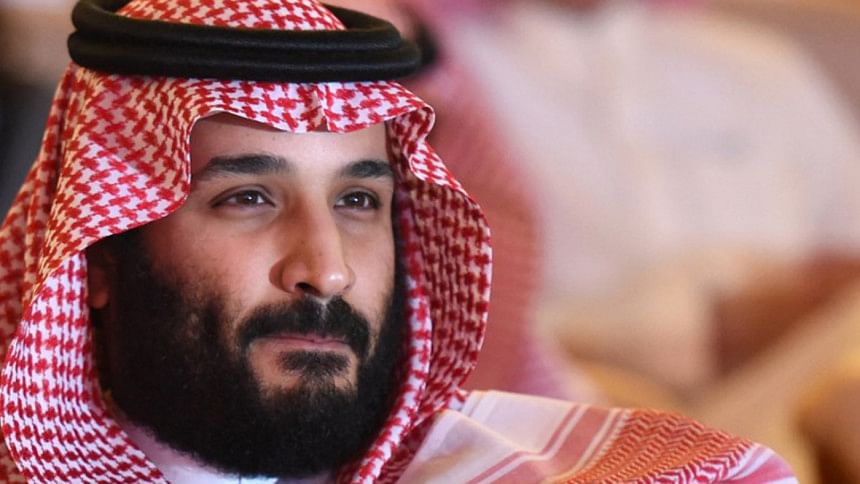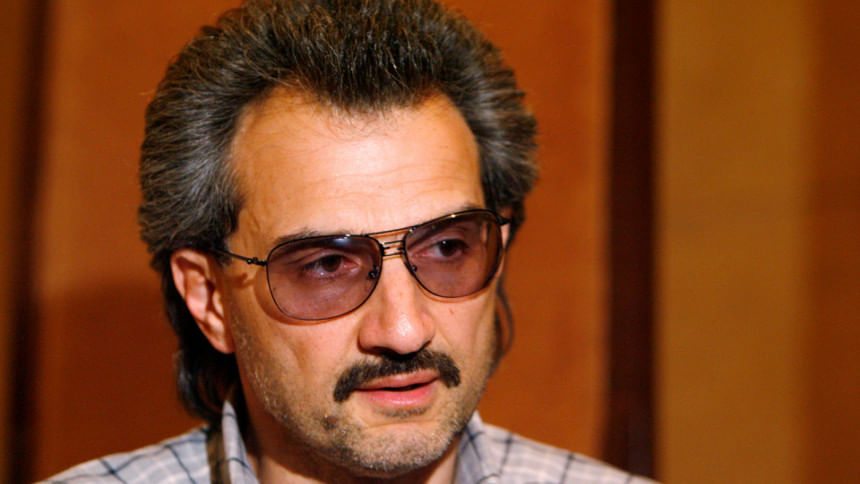Saudi king sacks top ministers, boosting crown prince

- Move helps consolidate young crown prince's authority
- New economy minister is former HSBC banker
- Dozens of princes, officials detained in anti-corruption bid
Saudi King Salman appointed two new ministers on Saturday to key security and economic posts, removing one of the royal family's most prominent members as head of the National Guard and boosting the kingdom's young crown prince.
Meanwhile, billionaire Saudi Arabian Prince Alwaleed bin Talal, who owns investment firm Kingdom Holding , is among people detained and under investigation by a new anti-corruption body, a senior Saudi official told Reuters on Sunday.
Also READ: Crown Prince Salman’s vow to moderate Saudi Islam - Easier said than done
Also detained and under investigation is former Saudi finance minister Ibrahim al-Assaf, said the official, who declined to be identified under briefing rules. Neither man could be reached immediately for comment.
King Salman announced late on Saturday the creation of a new anti-corruption committee chaired by Crown Prince Mohammed bin Salman, which Saudi-owned Al Arabiya television said had detained 11 princes, four current ministers and tens of former ministers.

The cabinet reshuffle saw Prince Miteb bin Abdullah replaced as minister of the National Guard by Khaled bin Ayyaf, while Economy Minister Adel Fakieh was removed in favour of his deputy Mohammed al-Tuwaijri, according to a royal decree carried by state-run media.
Prince Miteb, the preferred son of the late King Abdullah, was once thought to be a leading contender for the throne before the unexpected rise of Prince Mohammed two years ago.
He had inherited control of the National Guard, an elite internal security force built out of traditional tribal units, from his father, who ran it for five decades.
Prince Miteb was the last remaining member of Abdullah's branch of the family to hold a position in the upper echelons of the Saudi power structure.
The move consolidates Crown Prince Mohammed's control of the kingdom's security institutions, which had long been headed by separate powerful branches of the ruling family.
Prince Mohammed, the king's 32-year-old son, already serves as defence minister and was named heir to the throne in a June reshuffle that sidelined his older cousin, Prince Mohammed bin Nayef who had also served as interior minister.
He has been responsible at the same time for running Saudi Arabia’s war in Yemen, dictating an energy policy with global implications and behind the plans for the kingdom to build a future after oil.
Prince Mohammed, who has pledged to go after graft at the highest levels, will now also head up the new anti-corruption body, which was given broad powers to investigate cases, issue arrest warrants and travel restrictions, and freeze assets.
"The homeland will not exist unless corruption is uprooted and the corrupt are held accountable," the royal decree said.
New Economy Minister
The country's new economy minister, Tuwaijri, is a former Saudi air force pilot and former chief executive of HSBC’s Middle East operations who has led the economy ministry's programme to privatise some $200 billion of government assets.
He replaces Fakieh, who served as the point man for the kingdom's wide-ranging economic reforms since his appointment as economy and planning minister in 2015.
A former food executive with a reputation for pushing through politically sensitive reforms, Fakieh had previously served as labour minister, health minister and mayor of Jeddah.
Fakieh faced down fierce opposition from the business community as labour minister when he established quotas for foreign workers to boost jobs for Saudis.
Under Prince Mohammed, Fakieh led the development of a national transformation plan and privatisation drive launched last year to end the kingdom’s vulnerability to an unpredictable oil market. His replacement comes as the kingdom makes adjustments to that plan, a process dubbed NTP 2.0.
The royal decree did not say whether Fakieh would hold any other government position. Former ministers often serve in advisory roles after leaving their posts.

 For all latest news, follow The Daily Star's Google News channel.
For all latest news, follow The Daily Star's Google News channel. 








Comments